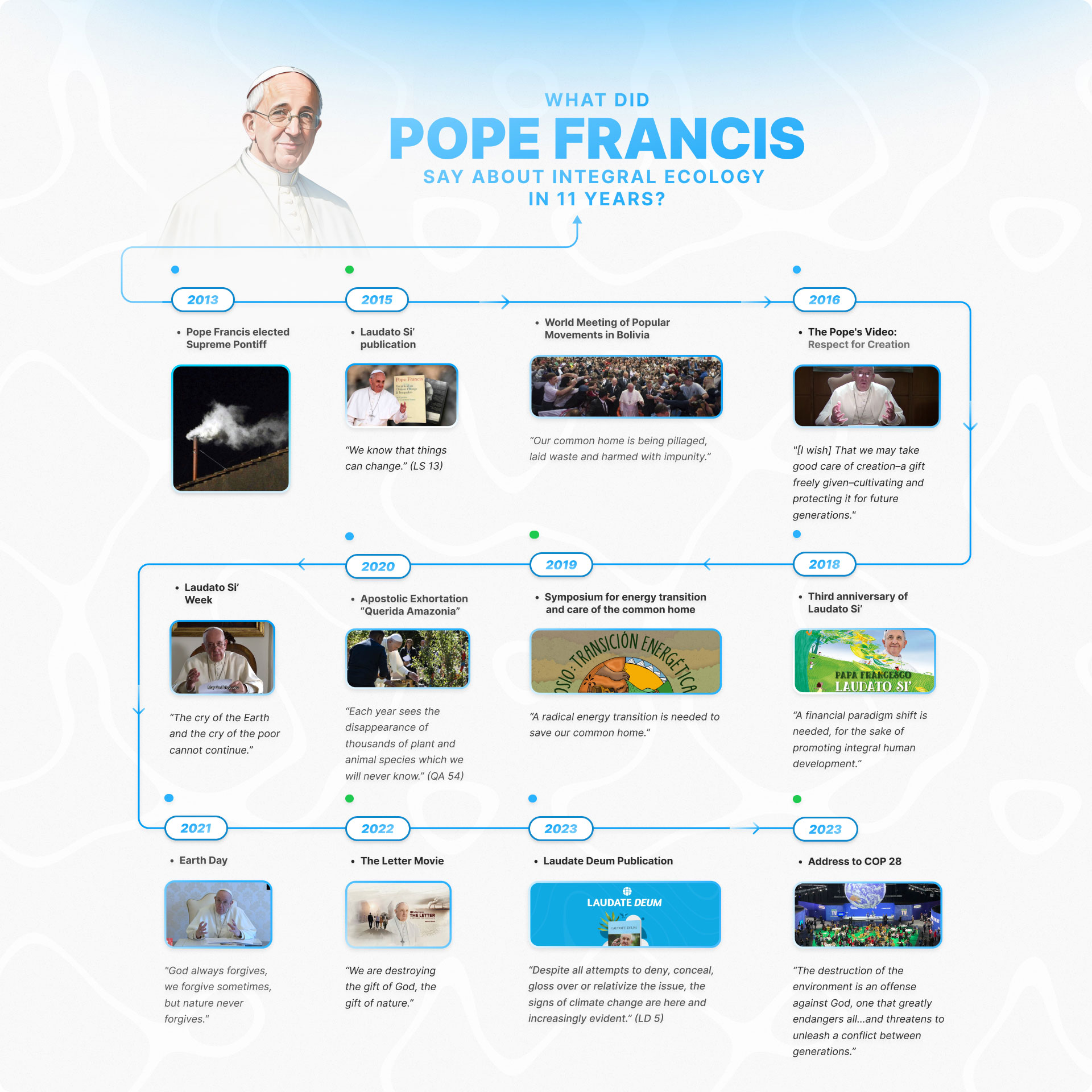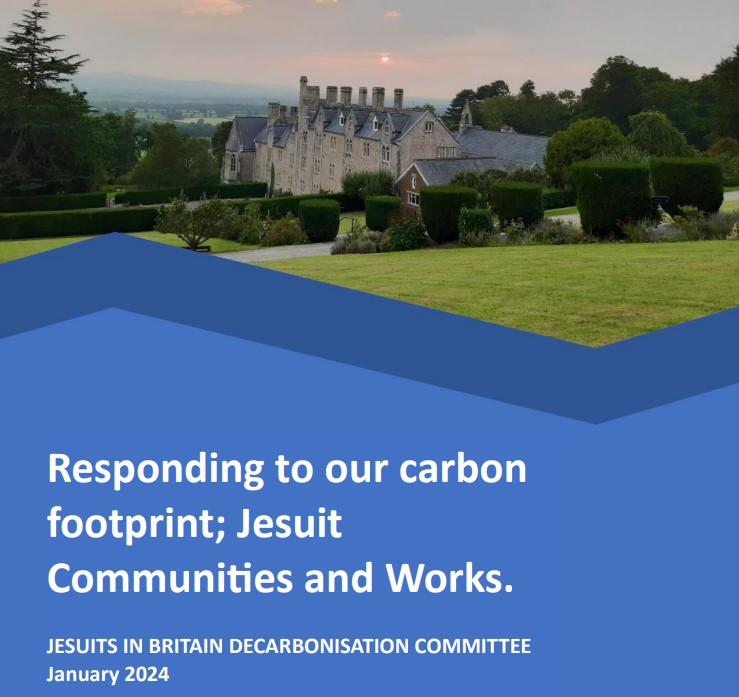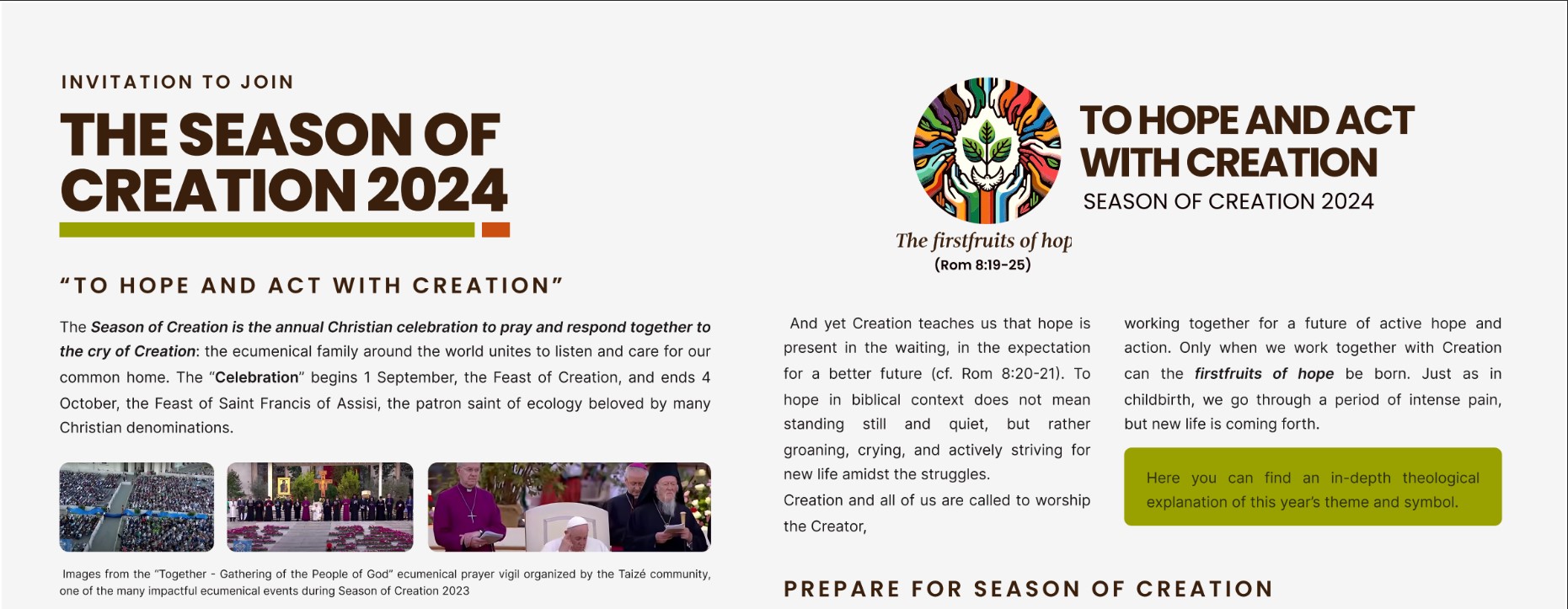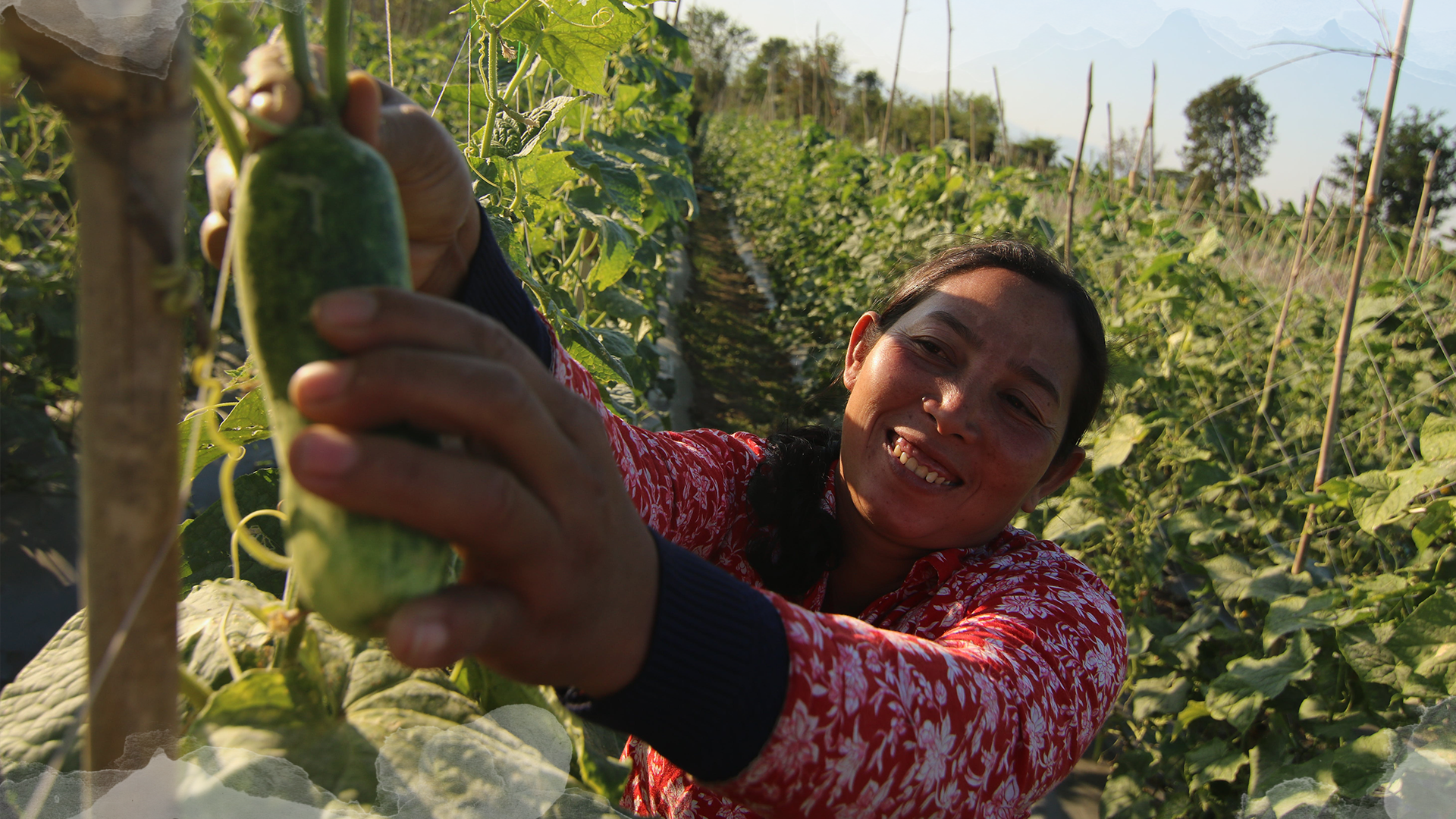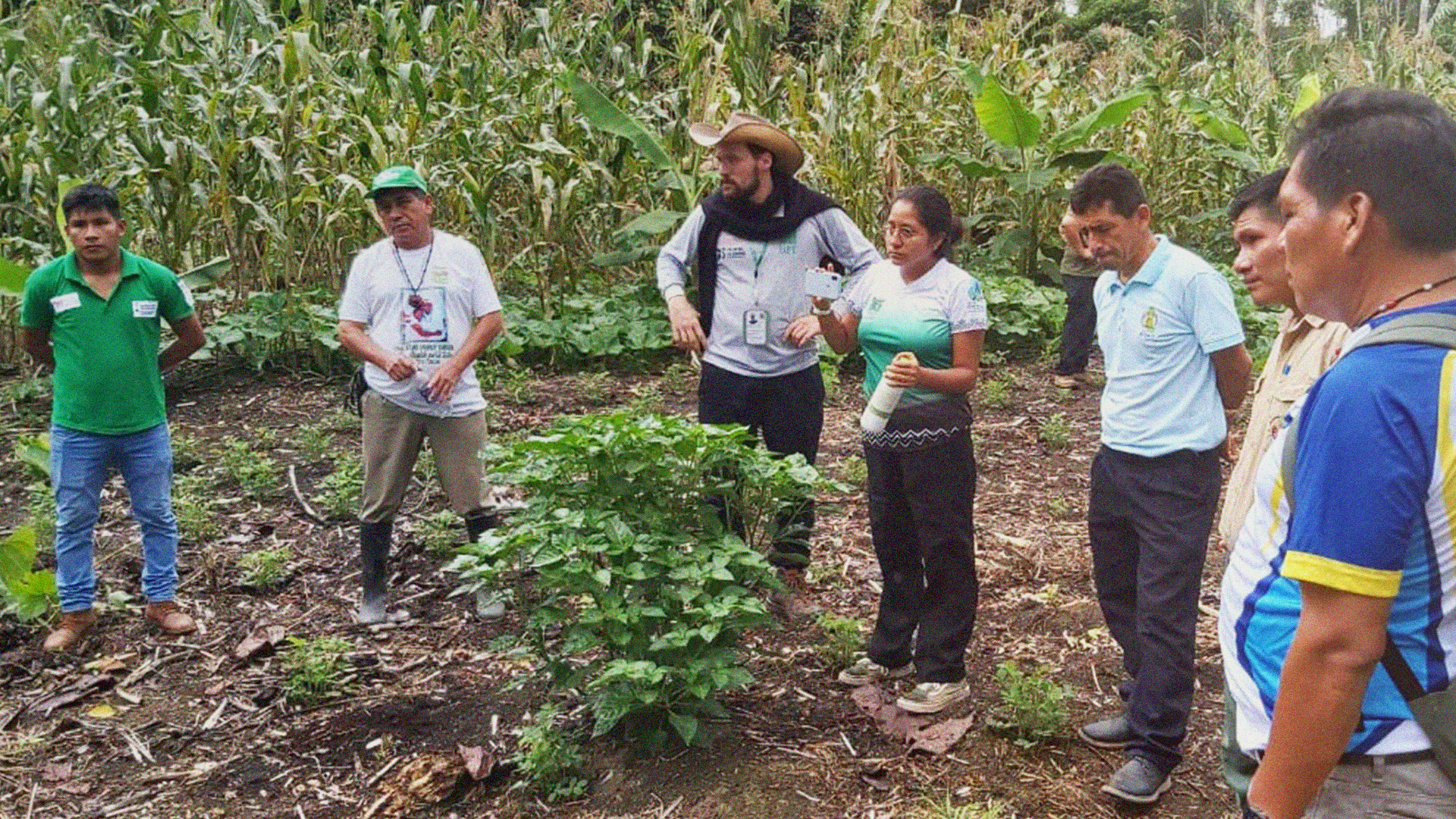SJES invites Jesuits to join the Laudato Si’ Animator course. The secretary invites all companions to take advantage of this free online course on integral ecology promoted by the Laudato Si’ Movement.
Ecology
Caring for our Common Home1. WHAT IS GIAN - ECOLOGY?
Global Ignatian Advocacy Network Ecology (GIAN-Ecology) goes with a short form Ecojesuit. It is the global ecology network of Jesuits and collaborators seeking integral ecology through facilitating and enabling dialogue that includes the voices of local communities, indigenous peoples, faith leaders, farmers, policy makers, economic experts, and more.2. HOW DID IT ALL START?
In 1995, recognizing the ecological problems of the world, 34th General Congregation GC) recommended to Fr. General (D. 20) to make a study and orient the Society of Jesus in its mission. At the invitation of Fr. General, the then Social Justice Secretariat (SJS) made a study and published its results in “We Live in a Broken World: Reflections on Ecology” (Promotio Iustitiae 70/1999).In 2008, reflecting on the context and challenges faced, GC 35 called to establish right relationship with God, one another and creation (D. 3). It invited everyone to reconcile with creation and “move beyond doubts and indifference to take responsibility for our home, the earth” (#31). To do this in an organized and collaborative way, the GC invited the Jesuits to “build bridges between rich and poor, establish advocacy links of mutual support…” (#27).
Taking the invitation to establish advocacy links seriously, the Social Justice Secretariat organized an “Ignatian Advocacy Workshop” in El Escorial, Spain (Nov. 10-16, 2008). It is in this workshop, the Global Ignatian Advocacy Network (GIAN) takes birth with Ecology as a major theme for advocacy network in the Society of Jesus.
Besides, acknowledging
the significance of ecological justice mission in the Society of Jesus, Fr.
General rechristens the then Social Justice Secretariat (SJS) to Social Justice
and EcologySecretariat (SJES).
In 2010,
SJES established a Task Force on Ecology and the outcome was the document, Healing a
Broken World (PI 106/2011).
3. WHAT IS THE GOAL OF ECOJESUIT?
To facilitate engagements among Jesuit social, educational, pastoral institutes, as well as other religious congregations and the Church to address Laudato Si’s broad call for action. To achieve this, the following actions are undertaken:- Promote local-global cooperation: Dialogue to discern, with the scientific community and with belief systems, on the role of values and civil society in achieving effective change;
- Accompany regional actions: Collaborate to encourage links with regional networks and with diverse stakeholders; and
- Support local initiatives: Network to strengthen local efforts in ecological conversion.
4. HOW DOES THE NETWORK FUNCTION?
Ecojesuit is a wirearchy of the Social Justice and Ecology Secretariat. Planning, execution, and evaluation is done together with the six Jesuit Conferences and partners. The Secretariat facilitates and guides discussions in monthly dialogues or meetings with Ecojesuit globally or with Conference Coordinators and their teams. Further evaluation in terms of project reporting is done by the Secretariat.5. SOME SUCCESSES AND CHALLENGES
- People have increasingly been sharing their stories; from 34 in 2018, this figure jumped to 81 in 2020. These are circulated in bi-monthly newsletters featuring original content, and bi-monthly Ecostream newsletters highlighting materials of the Jesuit Conferences.
- The six Lead Actions is in itself a success as it is the product of dialogue and careful discernment with the Jesuit Conferences.
- COP26 online platform invites discussions and the sharing of materials and participation in the COP process for 2021.
- Online events and processes launched for Lead Action 1: Connect Agriculture and Entrepreneurship, and the Economy of Francesco.
- Regular creation of materials such as videos that communicate the call for ecological conversion, climate action, and collaboration.
- Participation in global UN processes such as COP, UNEP Faith for Earth, SDGs. We are now awaiting the result of our application for observer status with UNFCCC and UN ECOSOC for access to events.
- Peoples’ assignments are coordinators continues to shift given developments in the broader conference responsibilities and possibilities.
- The act of networking, especially that at a global level, is new to many Jesuits and collaborators. This entails a lot of time is spent in accompaniment, listening and learning. In responding to this, Ecojesuit produced a “Workbook on Effective Collaboration”.
- Core Team members are sometimes busy with institutional commitments and responsibilities.
- Connecting with a diversity of people brings a diversity of languages and the need for translations and translators is critical.
6. ACTION PLANS FOR THE NEAR FUTURE
Ecojesuit is focused on promoting collaboration, engagement, and advocacy around these four global processes:COP26
Agroecology, sustainable food systems, and entrepreneurship
Ignatian Year
Laudato Si’ Action Platforms
At the regional level, we also seek deeper engagement with ecclesial networking through:
RAOEN
REPAM
REBAC
7. ECOJESUIT CORE TEAM
- Pedro Walpole SJ - [email protected]
- Ngonidzashe Edward SJ – Jesuit Conference of Africa and Madagascar (JCAM)
- Mercedes Solis Curi – Conferencia de Provinciales en América Latina y El Caribe (CPAL)
- John Kennedy SJ – Jesuit Conference of South Asia (JCSA)
- Chris Kellerman SJ – Jesuit Conference of Canada and the United States
(JCCU)
- Filipe Martin SJ – Jesuit Conference of European Provincials (JCEP)
- Gabriel Lamug-Nañawa SJ – Jesuit Conference Asia Pacific (JCAP)
- Sylvia Miclat
- Maricel de Jesus
- Criselle Mejillano
- Danielle de Jesus
- Sue Martin (JCAP)
8. OTHER RESOURCE DOCUMENTS
- The Ecojesuit Lead Actions to Build a Better Normal brochure is available in English, Spanish, French, and Portuguese.




